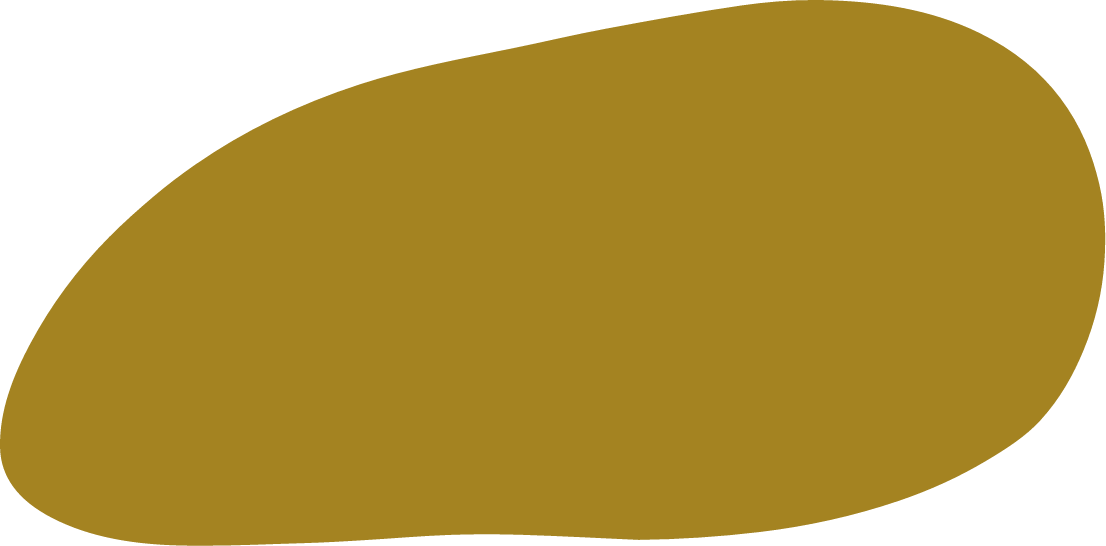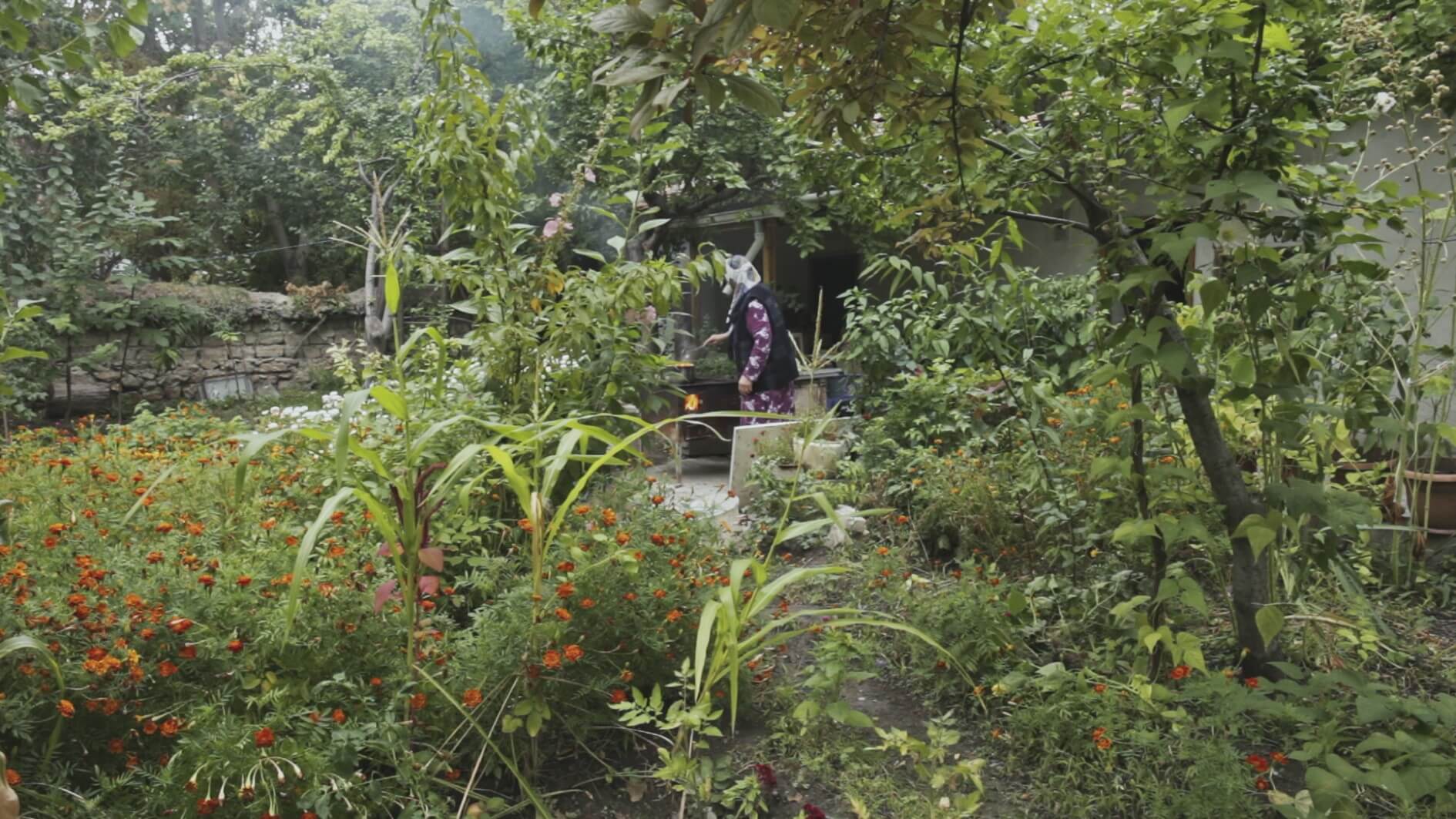Established in Cappadocia by the sisters Güler and Türkan, the garden at the centre of the two-channel video and textile installation, Flames Among Stones, is a haven, a fertile ground for going into resonance with the earth and its knowledge. Together with their daughters and granddaughters, the siblings quietly care for their enclave’s ecosystem and numerous more-than-human inhabitants. Together, they collectively shape a space for community and agriculture, following the rhythm of the seasons. They shape the garden and let themselves be shaped by it. Through organic gestures, they work with soil―not against it―, potentiating its growth, as if they were equally part of a living cell whose membrane would be the plot’s protective wall.
Correspondingly, a vast curtain surrounds the video like a skin formed by panels of fabric, hand-dyed with earth and plant pigments sourced from the sisters’ enclosed garden, along with soil and vegetal matter collected from other community, memorial, allotment, and guerrilla gardens— all of them spaces for solidarity and resistance. The imprints of these lands on the fabric are sensorially experienced, while entering into the imaginary space opened by the video. In an intimate pact, the textile holds the audience as the wall holds the sisters.
The garden could not exist without the wall marking the separation of an autonomous feminine space, that escapes an authoritarian and patriarchal society. Within these boundaries, resisting the urban sprawl, the green land acts as an interface offering alternative strategies to forms of oppression. Güler and Türkan remind us of the significance of collective work and resilience during a period when the connection to land has been lost by most city dwellers. Gardening becomes the route to another form of wisdom, to reground ourselves and respond to exclusionary politics and ecological degradation. Fragile, the garden also reflects frictions. How to ward off an expanding city’s real estate pressure? What will happen after the sisters, now in their ’80s, are no longer here? Who will take care of the land given their family is scattered across different cities? Would their matrilineal-transmission-chain be broken as the one of Şahmaran?
Simultaneously unfolding in the video is Şahmaran’s story, a parabolic Kurdish folktale of intersectional knowledge and power loss. The fate of this deity, with the head of a woman and the body of a snake, is entwined with the garden narrative. Caves, rocks, and crevices are the mineral counterpoints of the verdant leafage, and suggest the journey made to reach Şahmaran’s lush haven. Convoking the presence and texture of resistant and resilient lands, the textile creates a sensorial cave within the metaphysical one, and a fictitious garden echoing the tangible one. Şahmaran’s ability to perceive earthly and otherworldly secrets and wisdom runs parallel to the women’s collective knowledge. Yet, her matriarch’s line is interrupted when, after being betrayed, her wisdom is passed on to her lover instead of her daughters. Despite this rupture, the installation, weaving age-old and contemporary narratives, conveys a sense of feminine strength. Pushing through the hanging veil is to merge into non-patriarchal, embodied, and more-than-human forms of learning, and sharing; unearthing forgotten myths, tools, approaches, and perceptions.
While Şahmaran’s haunting legacy may suggest a warning against the disconnection from soil-teachings, and the disappearance of ancestral transmission chains, it is a poignant reminder to collaborate and contribute to communal knowledge production, sharing support, hope, and resistance. Flames Among Stones asks how we act to protect our real and imagined gardens, and acknowledges that community is forming stems from a web of connection and kin, nurtured in the same soil.












